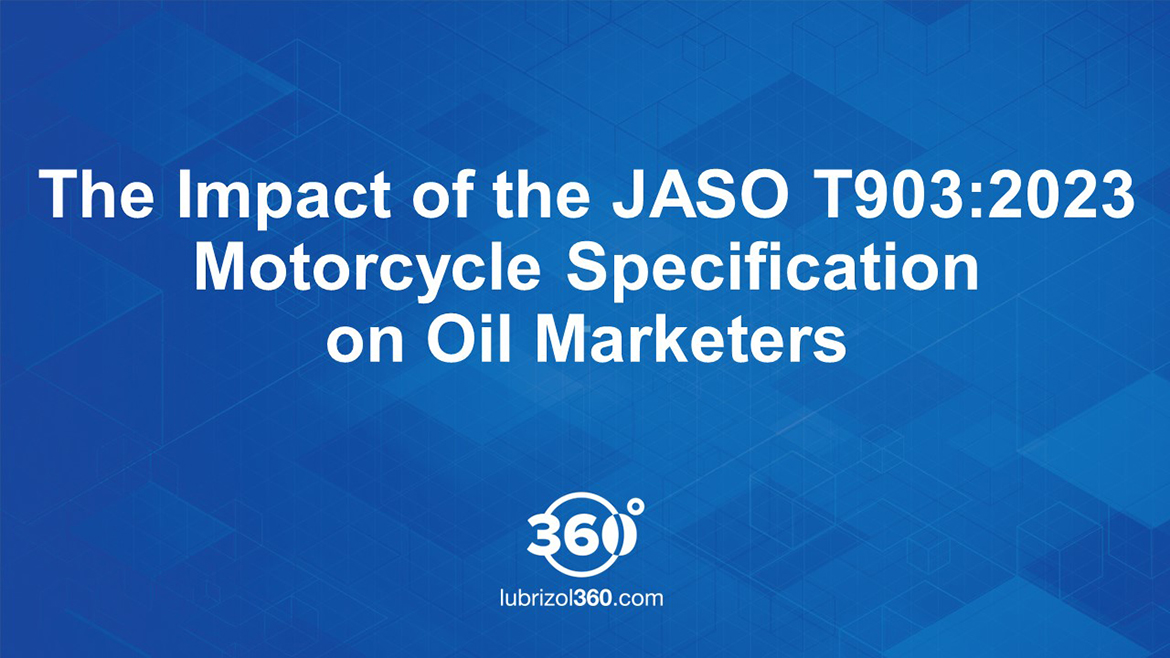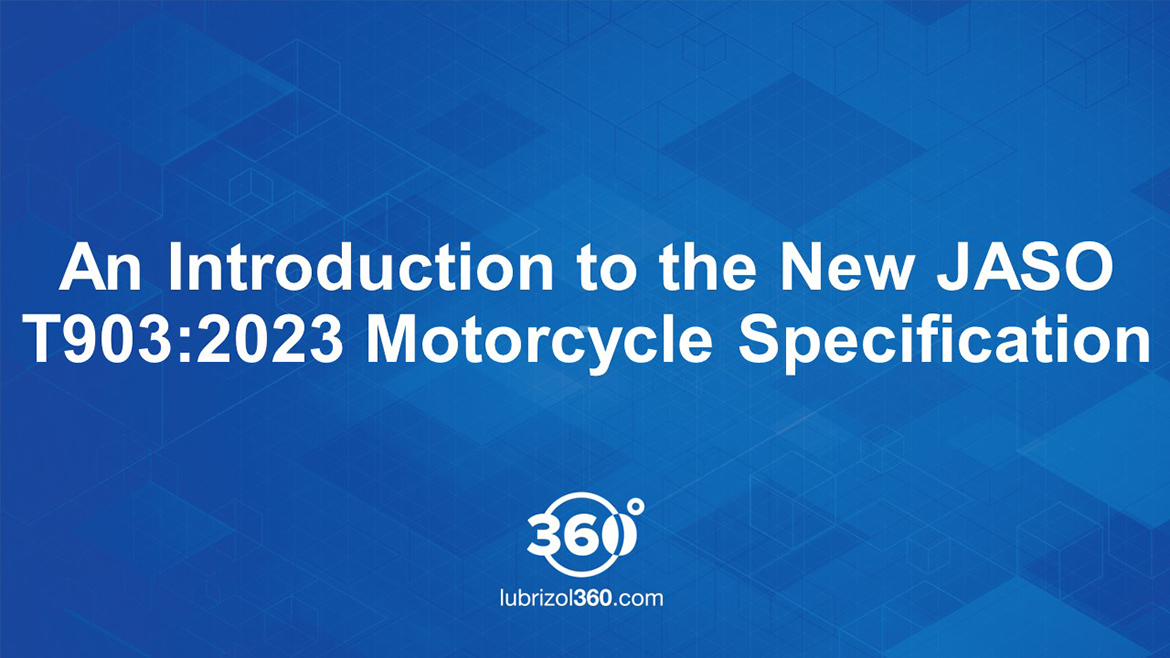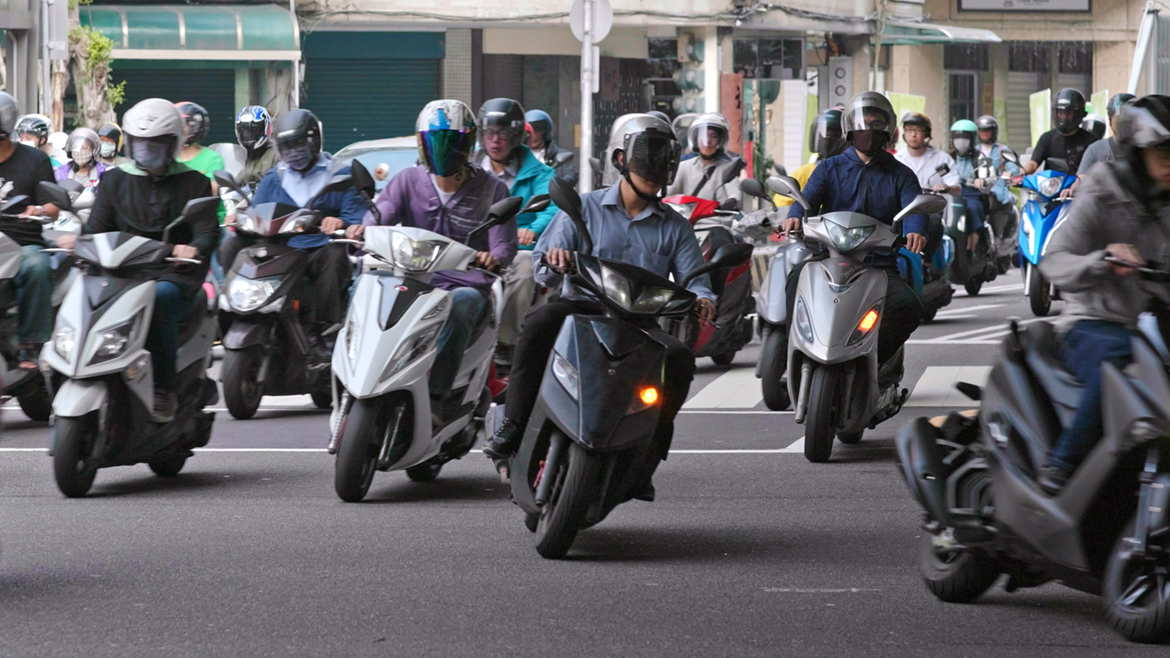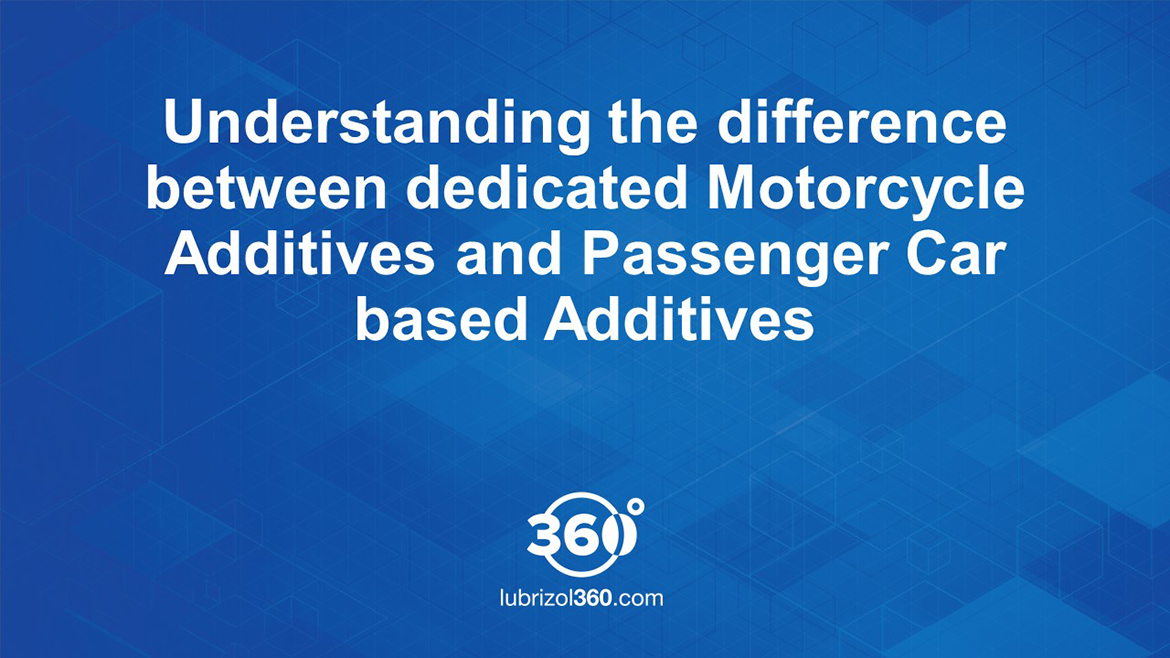JASO T903, the global motorcycle lubricant standard, specifies an important split that sets critical performance attributes necessary for motorcycles requiring low friction and high friction lubricants.
Motorcycles and scooters offer a convenient, manageable and fuel efficient way to get from place to place-so it's no surprise that their popularity is on the rise. Particularly in the Asia Pacific and South American regions, motorcycles and scooters are a growing mode of everyday transportation.
Today's lubricant technology has evolved for specific performance benefits in many unique applications. Motorcycles and scooters each have special considerations for lubricants-and it's critical that stakeholders around the globe are knowledgeable.
JASO T903: Ensuring Performance
Critical to understanding the unique requirements for motorcycle and scooter lubricants is JASO T903, the globally recognized standard for 4-stroke motorcycle lubricants. JASO T903 was introduced in 1998 in response to the increased use of friction modifier technology for fuel economy improvements in passenger car lubricant formulations. Most friction modifiers are incompatible with the wet clutch systems common in motorcycles and necessitated new standards for motorcycle lubricants to provide adequate clutch performance.
JASO T903 establishes two performance categories: MA for motorcycles fitted with wet clutch and MB for motorcycles fitted with Automatic transmission (Scooters).
Motorcycles house several components in one compact unit-the engine, a wet clutch and gearbox. This configuration relies on one oil to provide lubrication for the entire system. An optimum level of friction performance is therefore required in order to prevent clutch slippage, a problem that can lead to poor rideability and power loss during operation-a potentially undesirable scenario for riders.
By contrast, scooters typically utilize continuously variable transmissions (CVT) that are housed separately from the engine. Scooter oils do not require the high friction characteristics needed for a wet clutch, but still require specialized performance. Both motorcycles and scooters run under intense conditions, including hotter temperatures, higher engine speed and greater power density (power per unit displacement) than passenger cars, subjecting the lubricant to significant operating stress.
Thus, JASO T903 establishes two performance categories: MA for motorcycles fitted with wet clutch and MB for motorcycles fitted with Automatic transmission (Scooters).
JASO MA: Delivers the desired friction performance motorcycles need to prevent slippage in the wet clutch.
JASO MB: Delivers to scooters friction performance via friction modifiers in order to provide fuel economy benefits.
"There are many functions motorcycle and scooter lubricants must support, and proper friction performance in lubricants is imperative." - Mike Marcella, Global Project Manager
SAE #2 Clutch Friction Test
A lubricant is classified as MA or MB based on the SAE #2 Clutch Friction test included in JASO T903. The test evaluates performance across three friction performance areas, ensuring suitability for wet clutch applications:
Dynamic friction: Clutch feel and power transfer during engagement of the clutch
Static friction: Torque handling capacity and resistance to slippage under breakaway conditions
Stop time: How quickly the clutch engages
MA vs. MB and the need for dedicated lubricants
In the most basic terms, JASO MA and MB are differentiated by whether a lubricant is suitable for a wet clutch or not.
In 2006, in order to differentiate within JASO MA lubricants it was further divided between MA1 and MA2, with MA2 lubricants delivering the higher friction performance, enabling oil marketers to take advantage of evolving lubricant and additive technology for specific performance attributes. MB lubricants can be formulated with friction modifiers to contribute to greater fuel economy in Automatic Transmission (Scooter) applications.
Selecting the right additive chemistry for JASO MA and MB lubricants ensures the necessary performance in specific applications.
For oil marketers, selecting the right additive chemistry for each classification is critical for ensuring the necessary performance in specific applications. Communicating these benefits and considerations to end users is also important-while JASO MA lubricants are in fact suitable for all applications, MB lubricants may induce clutch slippage in motorcycles and must only be used in scooters.
For more information on how Lubrizol can help with your formulation needs, contact your Lubrizol representative.
For a deeper dive into specifications, see the Lubrizol Ready Reference Guide, the industry's go-to resource for understanding fuel and lubricant performance principles and requirements.



.jpg?h=658&w=1170&la=en&hash=1AEFFE4F0D96D91AD1D573C5986A3D30)

.jpg?h=658&w=1170&la=en&hash=F051DD2E78BEB30AA9C87A6F3D2BB06D)
.jpg?h=658&w=1170&la=en&hash=2DEEF13172DE3CF243E21672AE444A02)


